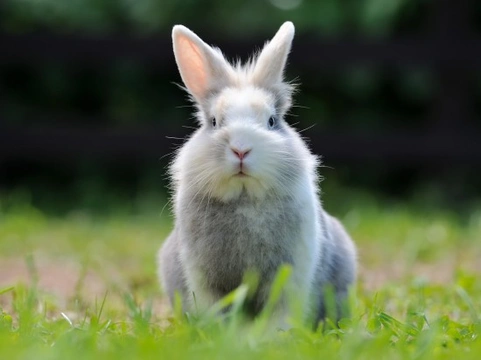
Bad Rabbit behaviour - Some common rabbit problems addressed
If you keep rabbits, you probably got them with the intention of enjoying holding, stroking and playing with your cute and cuddly companions, and enjoying watching them go about their often-entertaining daily lives. Rabbits do bond strongly with their owners when correctly handled and cared for, and can make for incredibly rewarding pets for people from all walks of life.
However, as with any other sentient living creature, rabbits do not follow a guidebook to good bunny behaviour and etiquette, and you may at some point find that your rabbit is acting out, behaving oddly, or causing a problem within the home.
Fortunately, most rabbit issues have a clear reason or cause behind them, and once you have ascertained what this is, you stand a good chance of tackling the issue.
In this article we will look at some of the most common problematic bunny behaviours, plus what you can do to resolve them.
If your rabbit nips or bites you
Anyone who has been on the receiving end of rabbit teeth will tell you that they are strong and sharp, and can inflict a painful bite!
Biting and nipping in rabbits should be tackled as two separate issues, as the causes for each behaviour are generally rather different. Some rabbits can be very territorial about their homes, and might bite or become aggressive if you put your hands into their hutch. Spaying and neutering can help with this, but ultimately, addressing biting comes down to ensuring that you handle and socialise your rabbit properly, and teach them to accept you.
This is especially important if you have children that handle your rabbit, and it is vitally important to ensure that your children know how to hold and pick up your rabbit properly, and hold and stroke them without hurting or scaring them.
If your rabbit is easygoing and happy to be handled but has a tendency to nip on occasion, take care to ensure that you are not startling them or handling them too roughly. Sometimes rabbits nip in excitement or even to get your attention, with no harm intended. Saying “ouch!” loudly every time this happens should, in time, teach your rabbit to soften their nip, or stop doing it altogether.
Inappropriate toileting
If your keep your rabbit within the home and they have a litter box, generally they will soon learn to use it consistently, as rabbits are by nature very clean animals that do not like to live surrounded by their own mess. Even outdoor rabbits will usually go to the toilet in the same place each time, making for easier clean ups!
However, if your rabbit seems to pee indiscriminately or even appears to be toileting in odd places specifically to get on your nerves, there may be a behavioural issue in play. Rabbits will sometimes pee on things to scent mark a location within their area, and to assert dominance, so your rabbit may be trying to take possession of areas of your home, or feel uncertain about what is theirs and what is not. Restrict your rabbit from roaming in areas where they do their business, until they moderate their behaviour and can be allowed another chance.
Inappropriate chewing
Rabbits have natural instincts to chew and dig things up, and can in some cases prove to be fairly destructive!
It is vitally important to ensure that you provide your rabbit with plenty of appropriate chew toys, to meet their need to chew and help them to keep their teeth at a reasonable length by aiding them in wearing them down. If your rabbit chews anything and everything, first ensure that their teeth are not so long that they need attention, and that they have enough chew toys of different textures.
Replace whatever your rabbit is chewing with an allowable alternative, close off areas that contain chewing temptations, and ensure that your rabbit cannot access dangerous things like cables and wires.
Eating faeces
It can of course be very off-putting to the rabbit owner to see their rabbits eating their own poop for the first time! However surprisingly, this is normal rabbit behaviour, and not something that you should seek to curb.
The healthy rabbit actually produces two different types of poop- the dry, desiccated pellets that you will find in the litter box, and also, soft, smelly clusters of dark poop that is called cecotrope. It is this latter type of poop that your rabbit will ingest, as part of a process known as coprophagia. This provides essential nutrients to the rabbit and forms part of their healthy, natural metabolism, however strange it might seem to us!
It does not mean that your rabbit is lacking something from their diet, or that they are exhibiting a behavioural problem, so gross as it is, you will just have to let them get on with it!



